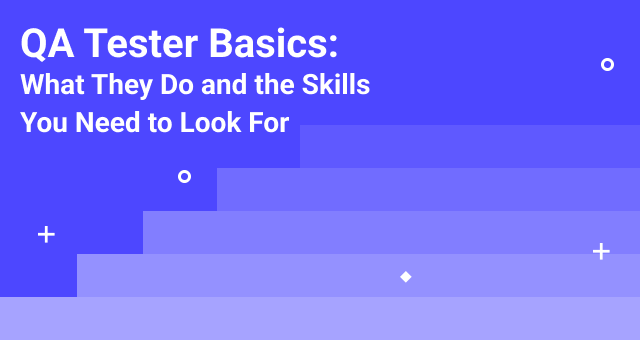Learn how to effectively identify and recruit top talent for this crucial role.
In today’s fast-paced tech industry, ensuring the quality of software applications is of paramount importance. That’s where Quality Assurance (QA) Testers come in. These unsung heroes play a vital role in identifying and rectifying software defects before they reach end-users. If you’re a tech recruiter aiming to find the right talent for your QA team, it’s essential to understand the basics of what a QA Tester does and the skills you should look for.
What Does a QA Tester Do?
At its core, the role of a QA Tester revolves around meticulously testing software applications to ensure they meet the desired quality standards. They design and execute test plans, analyze results, and collaborate with the development team to address issues. From functional testing to regression testing and performance testing, their goal is to identify and report bugs, glitches, or any other deviations from expected behavior. A QA Tester also plays a crucial role in ensuring that software meets usability, accessibility, and security requirements.
Key Skills to Look For:
- Attention to Detail: A keen eye for detail is essential for QA Testers. They need to meticulously examine every aspect of an application, from its functionality to user interfaces, to identify even the smallest of defects.
- Analytical Thinking: QA Testers need to analyze complex software systems, identify patterns, and troubleshoot issues effectively. Strong analytical skills enable them to navigate through intricate scenarios and pinpoint the root causes of problems.
- Technical Aptitude: While not mandatory, having a solid technical foundation is highly beneficial for QA Testers. Familiarity with programming languages, databases, and testing tools allows them to work efficiently and collaborate effectively with developers.
- Communication Skills: QA Testers need to effectively communicate with developers, project managers, and other stakeholders. They must articulate their findings clearly, document issues comprehensively, and collaborate to ensure timely resolution.
- Problem-Solving Abilities: QA Testers face a myriad of challenges during the testing process. They must think critically, approach problems creatively, and propose effective solutions to enhance the overall quality of the software.
- Adaptability and Continuous Learning: As technology advances rapidly, QA Testers must stay abreast of new testing methodologies, tools, and emerging trends. A willingness to adapt and continuously learn ensures they remain effective in their role.
By understanding these fundamental skills and responsibilities, you’ll be better equipped to find the ideal QA Tester for your team. Look for individuals who possess a blend of technical expertise, attention to detail, analytical thinking, and strong communication skills.
Remember, a skilled QA Tester can significantly contribute to the success of your software development projects. Invest time and effort in finding the right fit, and you’ll have a reliable partner in ensuring the quality and user satisfaction of your applications.

